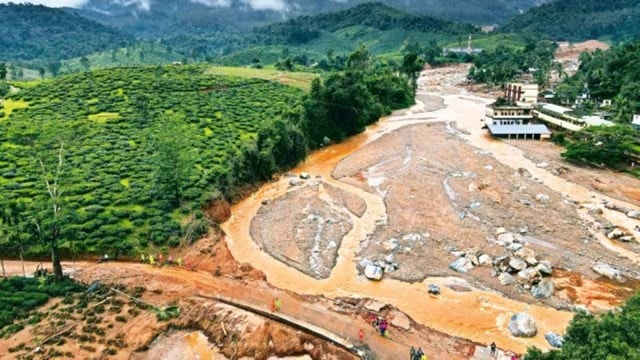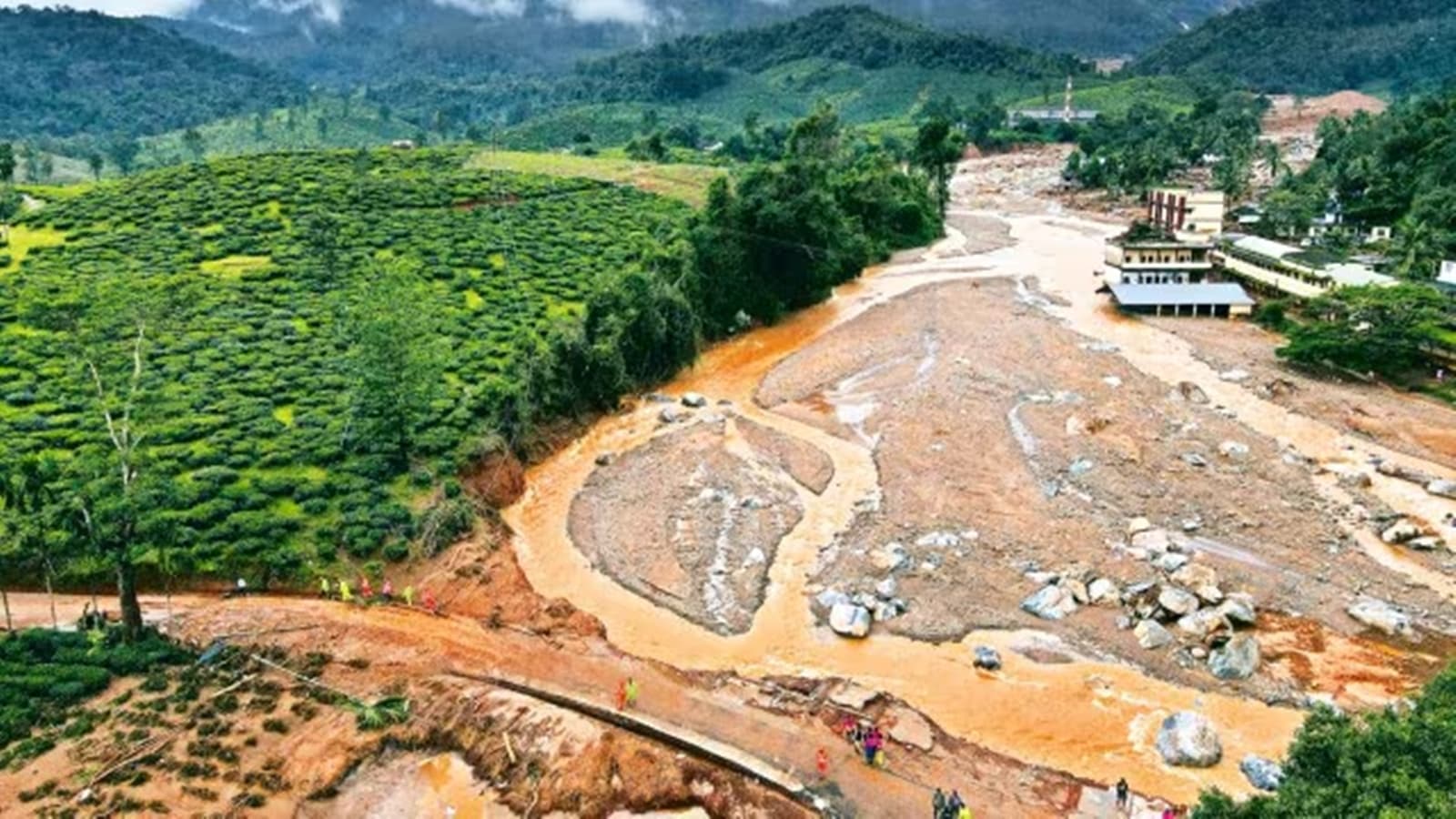
Mahatma Gandhi was greatly influenced by Christ’s ethic of love. For him, the text of Matthew 5:5 in the New Testament, “Blessed are the meek, for they shall inherit the earth”, was particularly important. In today’s India, the vast majority are meekly bearing the costs of environmental degradation that is serving the narrow interests of a small coterie of rich and powerful people in league with bureaucrats, and politicians of all hues. But the magnitude of the suffering and the loss of lives — the recent landslide in Meppadi in Wayanad claimed an estimated 400-odd victims — is now beginning to stir the country’s conscience.
Landslides on all scales have become increasingly frequent with growing pace of human interventions such as quarrying of rocks, mining, construction of roads and buildings on slopes in hilly regions. Our Western Ghats Ecology Expert Panel (WGEEP) had suggested that such activities should be banned after obtaining feedback from local communities in certain regions of Western Ghats identified as Ecologically Highly Sensitive.
The WGEEP report, initially suppressed by the government for being anti-development, was made public when prompted by an RTI enquiry in May 2012. As it came out, there was a storm of protests, backed by a campaign of disinformation. But there was also a fair level of support from different segments of society in the various Western Ghats states. This was particularly evident in Kerala because a Malayalam translation had reached a substantial number of people. I, therefore, received many invitations to lectures and visits which I eagerly accepted. At the same time, there were threats, too, and the Kerala government thought it prudent to give me police protection. I made one such visit to Chemban Mudi in the Pathanamthitta district in 2013. Granite quarrying and crushing had been going on in two giant quarries in these hills for a decade. Diesel emissions and quarry dust had triggered cases of asthma, lung cancer, bronchitis and tuberculosis among the locals. There were landslips and serious adverse impacts on streams and agriculture. There were horror stories about quarry workers, mostly Jharkhand tribals driven out of their lands due to devastation caused by mining. They had lost all contact with friends and relatives, and it was rumoured that whenever there was an accidental death, the quarry owners threw the body into the deep quarry pit, wiping out all traces of the victim.
The Geological Survey had strongly recommended against the on-going blasting. The district administration ignored this and continued to support the quarry operator. Unable to tolerate this any longer, the people launched a year-long mass movement against quarrying and crushing. The protesters, mostly women from nearly a hundred Kudumbashree units, marched to Chemban Mudi on March 21, 2013, forcibly bringing the operations to a halt.
In 2013, the quarry workers had indeed lost all contact with friends and relatives. But the situation has changed dramatically after 2015 as smartphones with facilities for use of local languages and audio and video clips have become affordable even to common people. Today illiterate tribal people in remote Naxal-affected villages of Maharashtra’s Gadchiroli district are in constant touch with each other and friends like me outside. Landless illiterate women in Bihar have started to click pictures of their goats on their phones, upload the images and sell their goats as far as 500–600 km away at 40 per cent higher prices on online sales platforms like OLX.
There is every hope, therefore, that thus empowered, the so-far meek commoners of India can now come forward to stake their rightful claims to the resources of their country. Naturally, this will have to begin with small and constructive steps. I propose four such steps for the people of Wayanad and other similarly placed compatriots. First, demand that all rock quarries be handed over to Kudumbashree groups. The experience of a similar women’s savings group in the progressive Mendha (Lekha) village in Gadchiroli district in 1991 has shown that women can handle such a challenge effectively, generating local employment and earning profits while taking prudent care of the environment. Second, allow no further tourist resorts. Instead, reserve the sector for homestays organised by tribals. This has been done effectively in Goa by people of the Velip tribe, and in the state of Sikkim. Third, hand over tea state management to well-organised labour cooperatives employing tea-garden labourers on decent wages and provide them decent housing.
Fourth, legally challenge the Wildlife Protection Act. Under WLPA, people are not free to defend themselves against marauding animals as even driving them out of their homes and crop fields needs official permission. Yet, the Indian Penal Code, Sections 100 and 103, sanction voluntarily causing of death or of any other harm to the wrongdoer if: [a] An assault by the wrongdoer may reasonably cause the apprehension that death or grievous hurt will be the consequence of such assault [b] If the offence involves the wrongdoer committing house or property trespass or robbery. Wild pigs and elephants have, on occasion, killed people, often trespassing on farmers’ properties and robbing them of farm produce. Tigers and panthers kill people and their livestock. Our people should no longer bear this violation of their fundamental rights meekly.
I hope and trust that we will soon see a new dawn with common people shedding their meekness and claiming their rightful inheritance.
The writer is an ecologist and chairman of the Western Ghats Ecology Experts Panel



